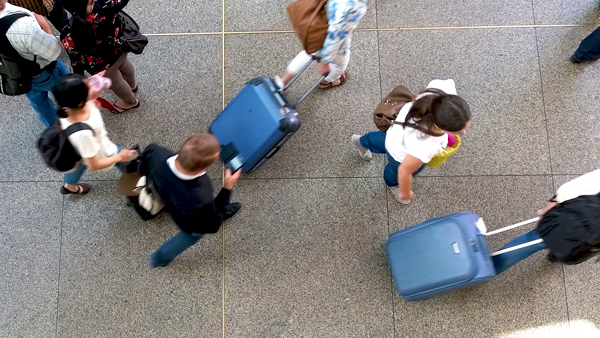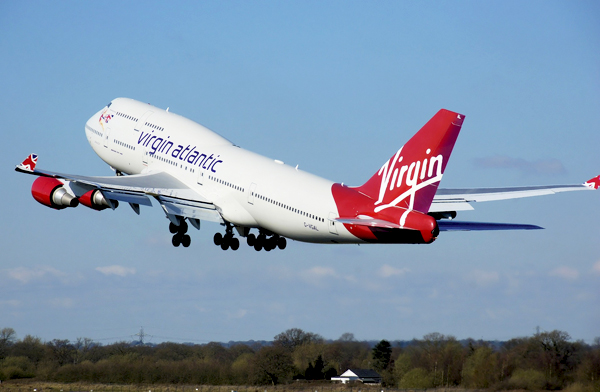Should Travelers Be Worried About Their Luggage Being Lost
▶️ Do you know you can pay for flights and hotel rooms with Bitcoins?
If you are a frequent traveler, your worst nightmare would be to lose your luggage and have the airline twiddle their fingers for the next 14 hours or so.
Six or seven years ago, cases of baggage getting lost, damaged or otherwise mishandled were a major pain and a cause of embarrassment for most airlines around the world.
In 2007, for example, 49.6 million bags were mishandled, which translated to around 19 items for every 1,000 passengers. In that year alone, lost bags cost the industry around $4 billion. These figures had stuttered and dithered over the years but nevertheless showed no signs of a permanent drop.
Recent statistics, however, show that airlines have been winning this war. In 2014, only 21.8 million (24.1 million according to other studies) bags were lost or mishandled. According to the USA's transport department, three in every 1,000 airline passengers lost their baggage in transit in 2014 compared to a scary 7 out of 1,000 in 2007.
While the figures show a very positive shift, travelers are still losing their baggage, and you would hope to take necessary precautions rather than have your airline tracking your items across the continent for hours on end.

So what can you do to minimize the chances of your luggage being lost?
1. Book non-stop flights
The obvious advantages of connecting flights for most travelers is that they get to enjoy incentives and at times, a reduction in what a non-stop flight would have cost.
However, changing flights along the way has the limitation of making you more vulnerable to baggage loss. You will be strolling through customs a lot of time and your stays in airport lounges will not help either.
Non-stop flying means that your luggage will be checked very few times, reducing the chances of loss ,damage or mishandling. It gets even better if you pack all your items in one carry-on as you do not have to keep track of two or three smaller bags along the way.
2. Find an upgraded bag
The most important part of your bag is the tag. Statistics show that most bags get lost when their tags are ripped off or lost in some way at the airport. Instead of going for paper tags, find bags that come with hi-tech microchips.
These chips help with tracking, which gives you the precise location where your bag is at any specific time. Others come with a code that can be used to verify location. In the unfortunate case, where the bag is lost, the airline can track it quickly for you by using these codes or microchips.
3. Short layovers are a huge red flag
The time allowed for switching bags between planes can be as long as two hours and as short as 30 minutes. Keep in mind that in this industry, flight delays are an accepted inconvenience. The tighter the layover window, the higher the chances that luggage will be misplaced or lost.
Avoid some online travel agencies because they sell mostly multi-leg local plans that offer very tight layovers. Keep in mind at every stage of the way, your bag will need to be checked, cleared at the customs, checked again at security and at times rechecked before boarding. All these processes will take some time, which is why you will need to plan for a layover of around two hours.
4. Ensure an early check in
If you check in late, then chances are that you will have to endure a painful, at times permanent separation from your bag. Handlers definitely need a good amount of time to process your stuff and load it.
At times, getting to the airport too late even with booked tickets causes confusion and leaves you restless in a long line. Ensure that you are at the airport at least 30 minutes from departure time. This way, you are able to undergo all processes and clear up any confusion before your bags are loaded up.
5. Ship your luggage
This is an incredibly simple process, and it is a surprise that so few travelers have taken it up. Days prior to your flight, simply ship all your stuff to a hotel or a trusted agency in your destination.
By doing that, you get to track your items to ensure that they do not get lost. This approach saves you constant worry and allows you to lug as much as you want without having to suffer overweight bag charges.
6. Use carry-on
Another option is to use a carry-on luggage bag. There is no way you can really lose you luggage if you use a carry-on bag because you will have it with you when you board and leave the airplane.
How do major airlines compensate for loss of luggage?
Major airlines have a great way of handling luggage. All compensation is, of course, pegged on an acceptable proof of claim and depend on expenses as well as distances required.
United Airlines pays up to $3500 for passengers traveling within the United States. Those with items like wheelchairs can claim more. Those traveling outside get to claim $9.07 per pound up to $640.
Delta will pay $50 for every day your items are lost up to a maximum of five days, after which 'a reasonable' reimbursement is agreed upon.
American Airlines will reimburse you upon the presentation of a receipt and provide a reasonable plan for the payment of assorted expenses.
Air France compensates its clients for delays by shipping the bag for free. They also offer vouchers of anything above 25 francs. The airline also has a provision of 100 Euros as emergency compensation for the replacement of items. It also follows the Montreal convention, which essentially means that once your bags are declared lost, you can claim up to 1250 Euros.
Virgin Atlantic will reimburse you for the purchase of essential items upon loss of baggage, to the tune of 50 dollars. After 21 days, they handle your claim according to the values in receipts obtained.

JetBlu has something they call Contract of Carriage, and it is upon this document that they peg their rules of compensation.
Etihad offers full compensation as long as the client possesses a Property Irregularity report (PIR).Claims can either be made physically or online.
Emirates has a very strict contract of carriage and was recently fined for unfairly limiting the amounts payable to affected customers.
British Airways pays up to 1,000 for lost baggage.
Qatar Airways are known to deliver 99% of all checked bags. Upon the loss of bag, they do an internal review and then compensate the customer with flyer miles and a 'small amount of money', which could be anything from 100 to 500 dollars.
Thomas Cook advises its customers to check with their holiday or travel agency, especially if the losses exceeds £250.
Turkish Airlines' liability does not exceed the amount proven by receipts and valuation documents. It does not accept liability for jewelry or perishables.
Have you ever lost your luggage? Let us know about it in the comments.
